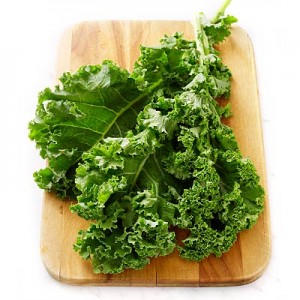 Proper nutrition, combined with safe and effective exercise, is especially important to maintain good health in people with hemophilia.
Proper nutrition, combined with safe and effective exercise, is especially important to maintain good health in people with hemophilia.
It is so important to get the essential nutrients we need and even more important in an individual with a bleeding disorder. Developing strong bones and muscles can help reduce the number of bleeds an individual experiences and being at a healthy weight will help to reduce the amount of stress on joints.
By adding a variety of colorful fruits and vegetables into your diet you will not only ensure you are getting the many nutrients you need, including potassium, dietary fiber, folate (folic acid), vitamin A, and vitamin C . But you are also reducing your risk of many conditions such as heart disease, diabetes, and certain types of cancer, obesity and bone loss.
Buying fresh fruits and vegetables is some times hard on the wallet. It can be tricky to gage how much you will eat before the items go bad.
Door to Door Organics has put together a great list of storage tips for produce to help you get the most out of the fresh foods you are buying. So go ahead and load up on the healthy goodness of fresh fruits and veggies!!
- APPLES – Refrigerate or store in cool area. (4-6 weeks)
- APRICOTS – Ripen at room temperature, then refrigerate. (1-2 days)
- ARTICHOKES – Refrigerate. (2-3 days)
- ASPARAGUS – Refrigerate, unwashed, covered. (1-3 days)
- AVOCADOS – To ripen, place the fruit in a plain brown-paper bag and store at room temperature until ready to eat. To store cut avocado, sprinkle it with lemon or lime juice or white vinegar, lay plastic wrap directly on the avocado, and refrigerate.
- BANANAS – Ripen at room temperature. (2-3 days)
- BEETS – Cut off tops 2 inches above crown. Refrigerate, covered. (3-4 days)
- BERRIES – Refrigerate, uncovered. Wash just before serving. (2-3 days)
- BROCCOLI – Refrigerate in closed bag. (4-5 days)
- BRUSSELS SPROUTS – Remove wilted leaves then store covered. (3-5days)
- CABBAGE – Refrigerate in closed bag. (1-2 weeks)
- CARROTS – Remove tops, wash. Refrigerate in closed bag. (1-2 weeks)
- CAULIFLOWER – Refrigerate in closed bag. (2-5days)
- CELERY – Wash, refrigerate in closed bag. (1-2 weeks)
- EGGPLANT – Refrigerate in closed bag. (3-4 days)
- GARLIC – Store at room temperature. (1-2 months)
- GRAPES – Refrigerate in perforated bag. (1-2 weeks)
- KALE – Wash then refrigerate in closed bag lined with paper towel. (3-4 days)
- KIWIFRUIT – Ripen in warm, humid place. Refrigerate. (1-2 weeks)
- LEEKS – Refrigerate covered. (5-7 days)
- LEMONS – If washed and dried and sealed in a zip-lock bag will last for weeks with no change in taste or look.
- LETTUCE – Wash, drain, and refrigerate in closed bag lined with paper towel. (3-4 days)
- LIMES – If washed, dried, and sealed in a zip-lock bag, will last for weeks with no change in taste or look.
- ONIONS – Keep dry. Refrigerate or store in pantry. (1-2 months)
- ORANGES – Room temperature (3-4 days) or refrigerate. (2-3 weeks)
- PEARS – Ripen at room temperature, then refrigerate, unwashed. (1-2 weeks)
- PEAS – Refrigerate unshelled. (1-2 days)
- PEPPER – Refrigerate or store in cool, moist area. (1-2 weeks)
- POTATO – Keep cool, dry, and dark. (2 weeks)
- RADISH – Refrigerate. (5-7 days)
- SPINACH – Refrigerate covered. (3-4 days)
- SQUASH – Store cool and dry in pantry for 3-4 weeks. If cut, refrigerate covered.
- SWEET POTATO – Keep cool, dry and dark. (2 weeks)
- TANGELO – Room temperature (3-4 days) or refrigerate. (2-3 weeks)
- TANGERINES – Room temperature (3-4 days) or refrigerate. (2-3 weeks)
- TOMATOES – Store at room temperature (stem end down) until ripe. Then refrigerate. (1 week)
- ZUCCHINIÂ – Â Refrigerate. (4-7 days)



